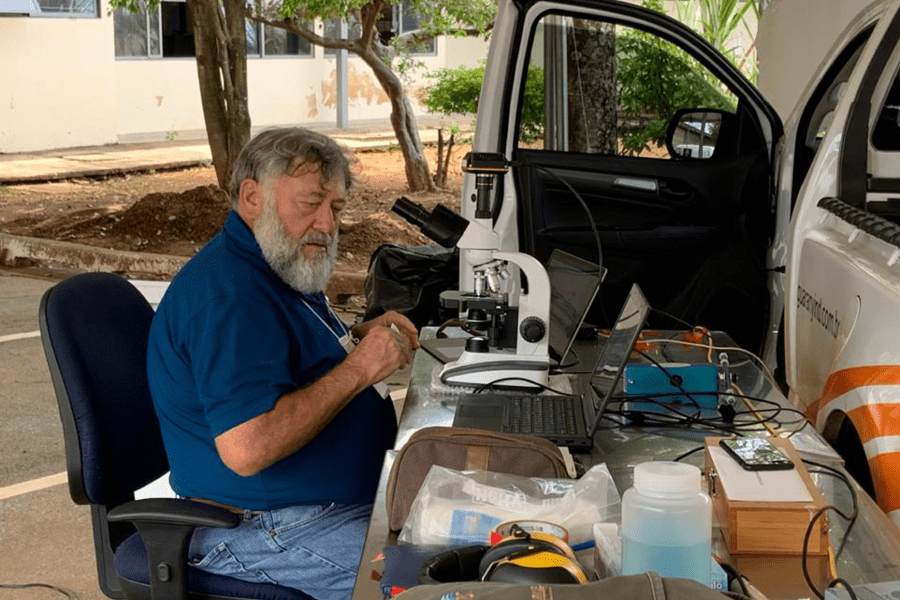Protecting public health across the globe


Bill Jany is Clarke’s 2018 Coworker of the Year and Senior Technical Advisor for International Business. In this post, he talks about his experience bringing Cielo, Clarke’s new international adulticide, to the market.
A: First, working to ready Cielo for the global market was an experience I really enjoyed – the role of a lifetime. It was a chance to work directly with international experts and colleagues I’ve known and respected for years. But it was so exciting because Cielo has the opportunity to revolutionize how Aedes aegypti control is done outside the United States.
Most mosquito control products are adapted from existing insecticides used in agriculture. But this time, the team identified what we really wanted a new adulticide to do. We designed it from the ground up, bringing public health officials a new active ingredient (Imidacloprid) with a unique mode of action and a profile that opens up new avenues to vector control internationally.
Adulticides are used mostly as space sprays to address Aedes aegypti around the world, and are applied both indoors and outdoors. Cielo can be applied in a ULV (ultra-low volume) sprayer, as well as by air. Cielo is also being evaluated for thermal fogging, which would offer even greater application flexibility.
What makes Cielo unique is the cloud characteristic it has when applied. It creates what our colleagues in Mexico have called a “magic cloud” that moves as a low-hanging mist in the right vertical air column to maximize efficacy.
Cielo also has a new solvent system that is neither water- nor oil-based. The value to public health officials is this carrier complex helps minimize vaporization and enhances absorption of the active into the mosquito.
Really, Cielo is a game-changer. Not only does it create a paradigm shift with the ability to use it indoors and outdoors, by ground and by air – it also brings a new active ingredient with a new mode of action to public health officials. And in regions such as Latin America, where Aedes mosquitoes are increasingly resistant to synthetic pyrethroids and organophosphates, the opportunity to introduce an adulticide with a new mode of action could be key to saving lives in a disease outbreak.
Our stewardship focus for Cielo is largely on education and training for the operators in the field. You can have the right tools, the right product…but if you don’t use them properly, they won’t be effective. So we’re working to bring the education component to the field. Not just calibration and characterization, but surveillance, new technologies and protocols. For example, Clarke just held the first-ever Mosquito University for public health officials from six Middle East countries a few months ago and we found that the attendees were hungry for that kind of knowledge. Outside the U.S., institutional knowledge is disappearing as the old guard of mosquito control professionals retires. Industry needs to fill that gap.